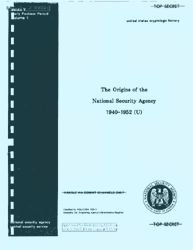Some modern anthropologists and religious historians advocate for the primacy of ritual practice in the study of religion. These scholars emphasize the creative or revolutionary aspects of ritual. Rituals do not enact stable sets of religious beliefs, but rather rituals construct, create, modify, or preserve religious beliefs (Bell 1992, 1997; Humphrey and Laidlaw 1994). As discussed in Chapter 1, people constantly choose to remember, forget, or recreate elements of their religion through ritual practices (Connerton 1989; Hobsbawm and Ranger 1983). In archaeology this perspective has been employed in the works of Bradley (1991, 1998, 2000), Rowlands (1993), and others (Chesson 2001; Mills and Walker 2008; Pauketat 2001; Van Dyke and Alcock 2003). Although specific rituals may remain the same over long periods of time, their meaning for society is constantly recontextualized. People transform and change underlying religious beliefs through the creation and practice of rituals. Rather than focus on the stable meanings of ritual actions, practice theorists emphasize the experiential aspects of ritual and the effects of ritual on the social relations between ritual participants. Practice approaches tend to focus on ritual change and what ritual does, rather than what it means, although it is important not to overplay this last point.
From a practice perspective, Bell (1997:ch. 5) identifies six characteristics that rituals and ritual-like activities exhibit to varying degrees. Bell is clear that these characteristics are not exhaustive, nor are the characteristics limited to religious ritual. The characteristics are as follows.
Formalism: Rituals often employ more formal, or restricted, codes of speech and action than people use in everyday life.
Traditionalism: Rituals often employ archaic or anachronistic elements.
Invariance: Rituals often follow strict, often repetitive, patterns.
Rule-governance: Rituals are often governed by a strict code of rules that determine appropriate behavior.
Sacral symbolism: Rituals often make reference to, or employ, sacred symbolism.
Performance: Rituals often involve the public display of ritual actions.
Ritual, from a practice perspective, is more a process than an event (Bell 1992; Humphrey and Laidlaw 1994). Certain actions are, or become, ritualized; they become more formal, traditional, invariant, and so on. That is, ordinary actions assume greater meaning and significance as they become ritualized and alter religious belief.




 World History
World History









